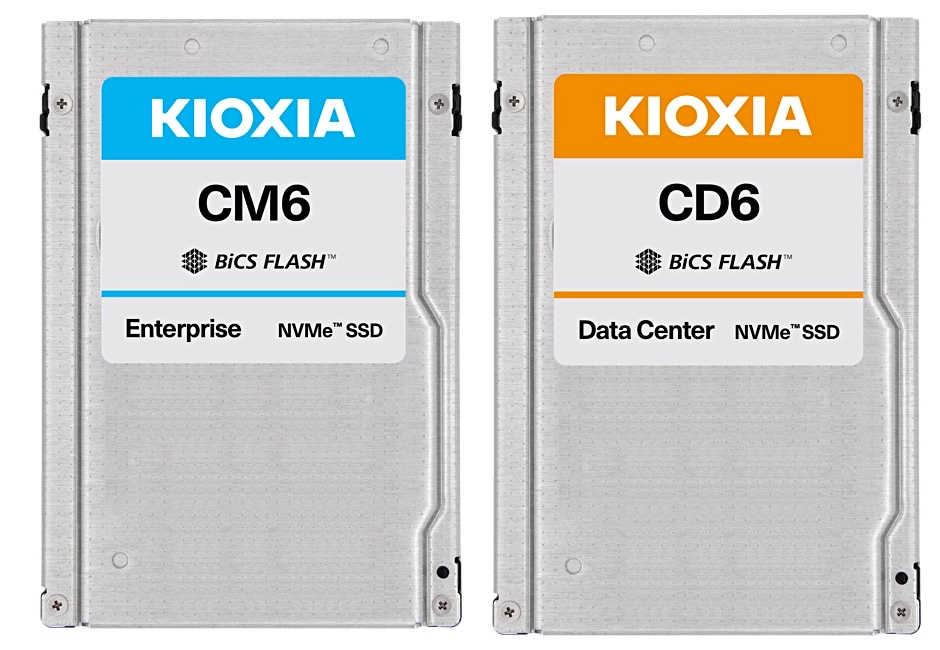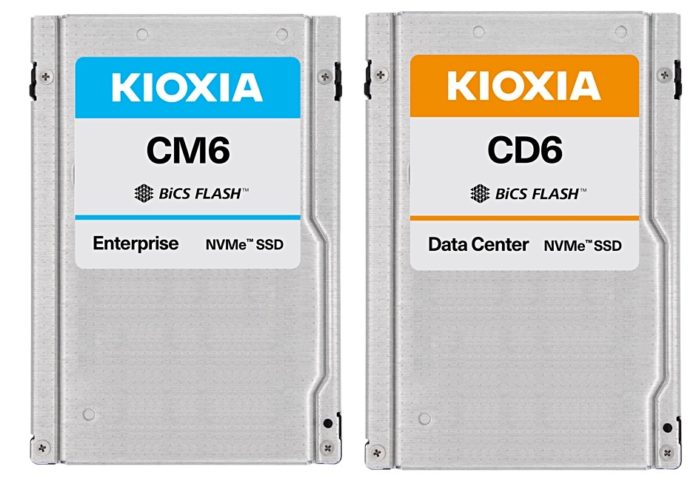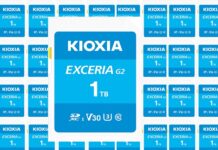Kioxia has launched two much faster than average NVMe SSDs – the CD6 and CM6, – which use the PCIe 4.0 bus to reach 1 million IOPS and beyond.
The CD4 and CD6 are enterprise class flash drives, designed for data centre use. The CD4 is single-ported and the CM6 is dual-ported, and therefore faster. They succeed Kioxia’s CD5 and CM5 drives.
Kioxia (formerly called Toshiba Memory) said they are the first data centre PCIe v4.0 drives to ship and their performance numbers (see below) suggest that servers fitted with PCIe v4.0 will get data in and out of memory much faster than current PCIe v3 servers.
The PCIe 4.0 bus delivers up to 64GB/sec, double PCIe gen 3’s 32GB/sec maximum. Now we wait for PCIe 4.0-compliant servers to ship with these drives.

The CD6 and CM6 come in mixed-use and read-intensive versions and are built from Kioxia’s BiCS 4 NAND – 96-layer 3D NAND formatted as TLC (3bits/cell). The read-intensive versions have higher capacities and lower endurance ratings as the mixed-use models have capacity set aside for over-provisioning (replacing worn-out cells).
The CM6 has a maximum 30.72TB capacity, which is a third more than Western Digital’s DC HC650 3.5-inch 20TB disk drive.

The headline numbers are up to 6.9GB/sec sequential read bandwidth and 1.4 million random read IOPS.
This is faster than Gigabyte’s Aorus PCIe 4.0 SSD with its 5GB/sec sequential read speed.
Compared to Kioxia’s CM5 drive (PCIe v3.0, 64-layer TLC NAND) the CM6 has up to 106 per cent more bandwidth than the CM5, 134 per cent more random read IOPS, 386 per cent more random write IOPS and 67 per cent lower latency.
Both drives come in a U.3 format, meaning they will fit in tri-mode 2.5-inch drive bays. These support SATA, SAS and NVMe connectivity. The drives are self-encrypting to a FIPS standard.
Western Digital is a partner of Kioxia in building NAND chips, so we can anticipate the company to announce PCIe 4.0 SSDs soon.








